Failure to Fracture, Ep. 1: Stress and Tension
Episode 1: Stress and Body Tension
One of my favorite quotes is this beauty from Donald Rumsfeld :
Reports that say that something hasn’t happened are always interesting to me, because as we know, there are known knowns; there are things we know we know. We also know there are known unknowns; that is to say we know there are some things we do not know. But there are also unknown unknowns – the ones we don’t know we don’t know.
When I look back at videos of myself playing Fracture as far back as 2006, I see someone who didn’t know what he didn’t know–someone confounded by the unknown unknowns.
Purchase King Crimson’s Fracture on iTunes
Or, purchase the album on Robert Fripp’s website
Self-Taught Unknown Unknowns
I started learning Fracture at the ripe young age of 18 or so–somewhere around the year 2000. My father had said to me, “Learn Fracture and then I’ll talk to you.” He was trying to challenge me with impossible songs and I was doing my best to teach myself to play. My aim was to shred, not to play an instrument with ease nor to understand any of the musical concepts behind what I was playing. As a teenager, I wanted to play fast and loud.
Fifteen years later at an introductory Guitar Circle course in Mexico, Robert Fripp said to me (and 7 other introductory students), “Please raise your hand if you taught yourself how to play guitar.”
I raised my hand as did a few others.
Fripp’s response was, “What you’re effectively telling me is, ‘Someone who knew nothing about music, nothing about the guitar, nothing about performance taught me everything I know.’” My internal response was a little defensive. I couldn’t help but admit that he was right, though. What had I really gotten out of studying recordings, reading magazines, and learning from transcriptions? The ability to move my fingers around on a fretboard through rote memorization?
[NOTE: For more intelligent discourse on this subject, check out the interview we did with Jeff Berlin. He has incredible insights about music education and being self-taught.]
The first few days of the Guitar Circle course focused on something called the Alexander Technique [AT] led primarily by two AT teachers with support from Robert and his “guitar buddies” (experienced co-instructors). I hated Alexander Technique. We spent a bunch of time talking about how to sit, how to stand, how to breathe, how to position your head on your neck… A few of us intro students were irritated and felt like it wasn’t a good use of our time.
And every morning, we spent 45 minutes with Robert doing nothing . Literally. We sat in a room staring in silence doing nothing. It was surreal and, frankly, bizarre. I went from never thinking I’d meet Robert to sitting in a room with him staring at a wall at 7:45AM in a small town outside Mexico City.
We barely seemed to do anything on the guitar until the third or fourth day. That’s when my back started killing me with constant pain and burning. Sandra Bain Cushman said this pain was due to my body undoing all of the poor habits I’d developed over so many years of misuse of my body. Suddenly, I felt awakened to a new me!
Change is Good!
The practice of doing nothing started making sense. As Robert said, “You can’t ask your body to do something until it can appreciate doing nothing.” This practice was revealing a quiet, relaxed version of me that I always carry around, but never listen to.
When I picked up the guitar, I could feel my body fighting new, good use techniques with old, poor use techniques. From the way I sat, the way I positioned my skull on my neck, the way I automatically tensed up playing the guitar… It was incredible.
Over the next several months, I worked very hard at sitting regularly and doing nothing, paying close attention to where stress appears in my body during everyday moments, while at work, while walking, while playing guitar, and more. The more I loosened up, the more I was able to navigate the picking for Fracture. One night in August 2015, it happened! I immediately started filming myself and sent it to my friend, Yehuda Kotton, an Israeli guitarist from the band Ahvak who’d also been working on learning Fracture.
Through the Alexander Technique and the practice of doing nothing, I have learned so much about myself and my habits. There is so much I didn’t know I didn’t know and I still discover new things about stress and tension in my body as I pick up the guitar and start playing.
Stress is Visible
Every time I play Fracture, I discover new areas where I’m stressing myself out. Most recently, the stress is appearing in my right forearm near my elbow and in my right shoulder.
A guitar instructor named Glenn Winter-Smith emailed me after Episode 0 telling me he could notice that I wasn’t loosened up. Admittedly, the practice performance in that video was the 50th take over the course of 3 nights and I was stressed and tired from playing and filming myself, but more importantly was the fact that an experienced instructor noticed my stress despite a year of concerted effort in relaxation.
Specifically, he wrote:
Your wrist and fingers on your picking arm could be a lot looser and manipulative than what they are,. I always tell my students to think ‘loosey goosey’,…pretend your arm is almost stuck in one position and you can only swivel/turn your wrist and swivel/turn your thumb/fingers with pick.
I still have a long way to go, but I know the goal is within reach.
